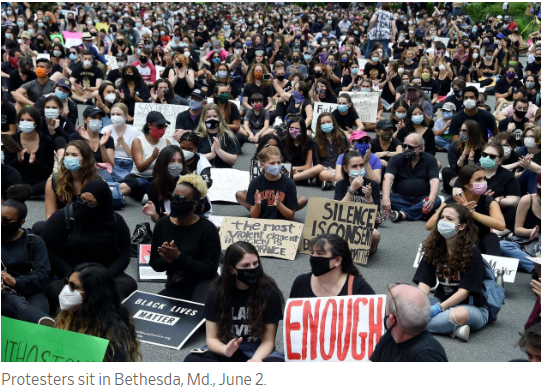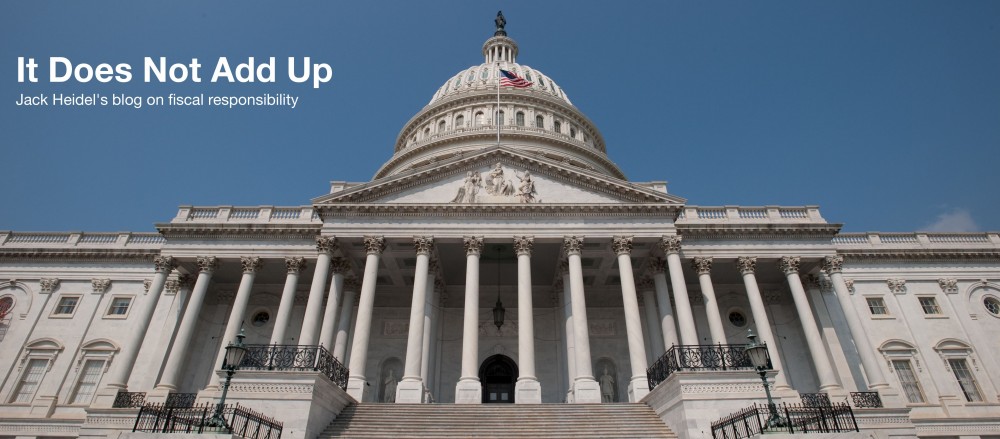My last three posts have addressed various aspects of racism in the U.S., see here, here, and here. I have been making a case that fundamental change requires going beyond police reform, as valuable as some police reforms might be.

Here is another key point made by Ian Rowe, a black scholar at the American Enterprise Institute. He says that “the narrative that white people hold the power conveys a wrong-headed notion of white superiority and creates an illusion of black dependency on white largess.” “The next generation of Americans – black and white – might grow up believing that the entire destiny of one race rests in the hands of another, which must denounce its privilege before any progress can be made.”
Along this line, a 2018 report, “Black Men Making It in America” from the American Enterprise Institute and the Institute for Family Studies, is very informative. Consider:
- Black men’s economic standing. 57% of black men have made it into the middle class or higher as adults today, up from 38% in 1960. The share of black men who are poor has fallen from 41% in 1960 to 18% today.
- The institutional engines of black men’s success. In addition to higher education and full-time work, three other institutions – the military, the black church, and marriage – play significant roles in black men’s success.
- The importance of individual agency. 52% of black men who had a higher sense of agency – feeling like they are determining the course of their own lives – as young men, had made it into the middle class when they reached age 50, compared to 44% of their peers who did not have that sense of agency.
- Contact with the criminal justice system. By midlife, only 28% of black men who had contact with the criminal justice system when they were young have moved into the middle or upper class, compared to 57% of black men who had no contact with the criminal justice system at a younger age.
Conclusion. “There are pathways to power for young black people.” An important goal of K-12 education should be to help black girls and boys cultivate a sense of personal agency and convince them that their well-being is determined more by their own actions than by support from the dominant race.
Sign-up for my Email Newsletter
Follow me on Facebook
Follow me on Twitter

Thank you for sharing your thoughts and your research.
I would like to comment on your agent-word choices: Help & Cultivate; Convince & Support.
Help & Cultivate: Perhaps I am being too picky here. Nevertheless, I’ll point this out.
I do not help my tomato plants cultivate their growth. Instead, I recognize that the life within the plant that causes its growth belongs, not to me, but to the plant. If I want the plant to grow and to produce, I will give it the soil, sunshine, and water that will nourish its development..
Systems that are based on the belief that the student must be taught how to develop roots, how to reach for the sun, and how to blossom will never succeed.
The student is the agent of his or her own growth. The school is the cultivator. Good educators know and show that fact.
Convince & Support: For generations, Blacks have been teaching their children the same facts that you suggest the schools convince them of – “Do not trust Whites to have your back“; “Put your hands on the dash when the police stop you.” “Speak harshly to your children to toughen them up for what they will experience outside the home.”
Blacks have long been the agent, the ones who have had to train their children that their safety and well- being is in their own hands.
My take: Trying to solve a problem while ignoring its history is like a lost person, wishing he could find his way home while refusing to consult his map to see how we got here.
A brief reading of Blacks and personal agency would reveal a long history of self support, of business and community creation, of educational accomplishment and of societal contribution.
It would also reveal the role racism has played in criminalizing and incarcerating innocent Blacks, in destroying black wealth, In burning black homes, in depriving top black students admission to college, in minimizing or hiding the societal contributions of Blacks, et cetera.
An education in the current and the historical experiences of Blacks in the USA would inform policy-makers that it wastes resources to cultivate students without also supporting those who face challenges external to the student.
Sometimes, my healthy tomato plants are beaten down by hail. Some are so beaten down that they cannot produce anymore. That only happened when I ignored the hail warnings and left the plants unprotected.
There have been plenty of warnings about racism within the school system and within society. Ignoring racism, choosing not to examine the damage it causes children, deciding to not provide shelter from racism is a much greater mistake than my failure to not shelter a few tomato plants from the hail.
Thanks for your very pertinent comments. I agree with you that society must take into account the long history of racism in America in trying to improve the lives of black people. And I would say that society is gradually doing this, even if in a very slow and halting way.
What I am also saying in this post, however, is that black people themselves are apparently developing more personal agency in the sense of realizing that they themselves have the capability to succeed in American society if they are determined to overcome racial bias and do what it takes to achieve both educationally and economically.
The evidence for this comes from the report, “Black Men Making It in America” which I reference and link to above.
To me this report is very encouraging because it means that the U.S. is making progress in overcoming the violent racism of its past.
In the article Mr. Horton shared, Nikole Hannah-Jones transitions from her long and informative introduction by stating, “We, now, have finally arrived at the point of this essay. Because when it comes to truly explaining racial injustice in this country, the table should never be set quickly: There is too much to know, and yet we aggressively choose not to know it.”
Yes! I agree. “The table should never be set quickly,” when it comes to the history and the current status of racial injustice.
Should you choose to learn more about racist thinking, you might want to read Ibram X. Kendi’s award-winning book, Stamped from the Beginning: The Definitive History of Racist Ideas in Ameria. I plan to begin my own education on this topic by reading it this fall.
Mark Horton
Jack, Thanks for sharing your thoughts on addressing police brutality, racism, and poverty. I’ve attached links to a couple of different points of view on those subjects. I believe we need to take an aggressive approach to police reform, and that taking a “color neutral” approach to addressing poverty, racism and massive wealth inequality is not enough. Hope you and Sharon are well. Mark.
Police: Last Week Tonight with John Oliver (HBO)
Thanks for your comments, Mark. The NYT essay on reparations is well written but simply not a good idea. America is already making a huge and successful effort to lift up blacks (see the links in my post above). Our best bet is to continue what we are already doing.
Concerning police reform there simply is no evidence for wide-spread police racism:
https://www.wsj.com/articles/no-police-racism-isnt-an-epidemic-11592952420
What is really needed is a more effective way to get rid of “bad apples” such as the cop Derek Chauvin who killed George Floyd. He had 17 prior complaints against him but the Minneapolis Police Union protected him from being fired. It is politically difficult to rein in police unions because all mayors, for example, want their support and therefore are unwilling to confront them.
Angie, thanks for your reading suggestion. I will order it right away.
Jack, On police reform: Allowing an officer with a record of at least 17 misconduct complaints over his 19 years in the department to serve as a training officer for new recruits to me indicates a serious culture problem in the department that goes well beyond the “bad apples”. We need to go beyond tweaking protocols for addressing officer misconduct. We need to look to fundamental restructuring of police departments.
As in the institutional codependency that exists between the police unions and the politics of municipal elections, Chicago and Illinois being the worst.
I agree that Derek Chauvin in the Minneapolis Polic Department should never have been made a training officer for new recruits. But, again, the fundamental problem is the excessive power of police unions who wield far too much influence in police operations, including the protection of “bad apples.”
As I mentioned earlier it will be very hard politically to limit the power of police unions because incumbent mayors want their political support. So this means the most likely practical way to make police reforms is to tweak around the edges as you put it. For example, the Omaha Police Department has just abolished knee neck pins on suspects, among other reforms.
My general attitude is that police officers and police departments are doing an excellent job overall, often, as today, under very trying circumstances. Civil society can’t exist without a strong police presence. To the extent that police are constrained from providing law and order, anarchy will result and our physical environment will become much less safe.
I have no doubt that the police union problem is bad in Chicago and other big cities.